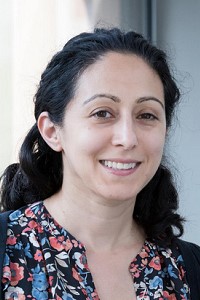Kathy Niakan conducts research on surplus embryos derived from assisted reproduction technologies. She is gaining insights into early embryonic development by gene silencing using the CRISPR/Cas technology.

Professor Kathy Niakan
Francis Crick Institute
Professor Niakan is the Director of the Center for Trophoblast Research at the University of Cambridge and Chair of Cambridge Reproduction Interdisciplinary Research Centre. She is also Group Leader at the Francis Crick Institute in London. In 2016, she became the first researcher in the world to get national regulatory permission to modify the genes of supernumerary embryos to gain new insights into the development of early human life. The embryologist uses CRISPR/Cas technology to selectively switch off genes to study whether they are relevant to development. She and her research team are contributing to increase knowledge about early embryonic development and to answer questions such as: What are genetic causes of miscarriage? What are causes of infertility? What is necessary for the development of a healthy embryo?
In addition to numerous high-ranking publications, she has received several nominations and awards such as the Blavatnik Award for her pioneering research on human embryology.
Further information: ↗ https://www.pdn.cam.ac.uk/staff/niakan
Perspectives of in vitro human embryo research
During preimplantation development human embryos are comprised of pluripotent embryonic cells, which eventually form the fetus, and extra-embryonic cells, which contribute to the placenta and yolk sac. The central question we address is what are the molecular mechanisms that regulate these early cell fate choices in human embryos. We are using a number of methods to dissect the function of genes during human embryogenesis. These methods have enabled us to uncover that the first lineage specification event in human embryos is the initiation of a placental program. Our work has also uncovered a high frequency of unintended on-target mutations following genome editing in human primary cells. By integrating signalling insights from human blastocysts we have defined human embryonic stem cell culture conditions that more closely recapitulate the embryonic niche. The molecular basis of these early cell lineage decisions are of fundamental importance and have wide-reaching clinical implications for infertility, miscarriages, developmental disorders and therapeutic applications of stem cells. I will also discuss how our research is conducted in the UK regulatory framework.